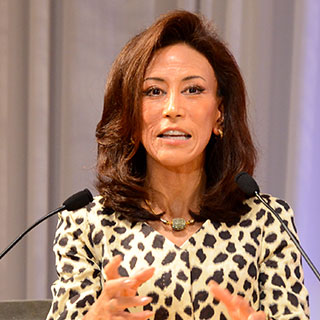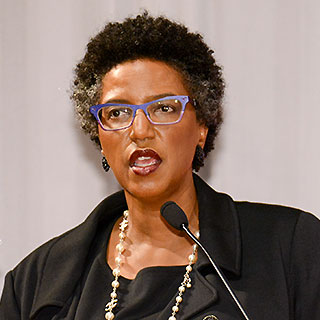Haruno Yoshida
President & Representative Director, BT Japan
Women for the Future
One need look no further than Haruno Yoshida to see the future of Japan.
Ms. Yoshida chose a career in information technology that led her overseas early on. Having taken leadership positions in sales in major North American multinational corporations in the field, as well as at the New York office of NTT, Japan’s telecommunications giant, she returned to her home country and became an inspirational figure in a middle management position at the company’s Tokyo headquarters.
BT Japan came calling in early 2012, where she assumed the role of president, responsible for driving the strategy and execution of all of the company’s business operations in Japan.
This year Ms. Yoshida became a historical figure when Keidanren, the Japan Business Federation, which represents the interests of business, brought her on as its first female executive, as Vice Chairman of the federation’s board of councilors. Here she will take part in initiatives that aim to transform Japan’s business culture from the inside out.
In his opening remarks at the WAW! 2015 symposium, Prime Minister Abe pointed out a key hurdle that must be overcome. He said, “Our greatest barrier is a working culture that endorses male-centered long working hours. If men themselves do not awaken to this fact and take action, we will not be able to eliminate this bad practice.”
Ms. Yoshida, who participated in a high-level roundtable discussion at the symposium called Engaging Men in Reforms, agreed. “The way we work is not realistic,” she said.
She expects Japan will change and quickly catch up with the West through smarter adoption of information technology to increase productivity, by applying the best practices built up over the last 40 years by countries overseas, and by taking advantage of the inherent diligence the Japanese demonstrate in carrying out goal-oriented initiatives.


